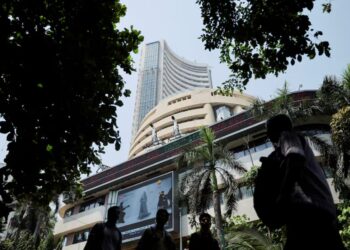The GST Council’s latest proposal could reshape the landscape for second-hand electric vehicles. Here’s what you need to know.
Tax Structure Overhaul
The Fitment Committee is eyeing an 18% GST on used EVs, matching rates for bigger, traditional cars. Right now, used electric cars are taxed at 12%, which makes them a sweet deal compared to SUVs and diesel vehicles taxed at 18%.
This move aims to balance the tax system, putting used EVs on the same footing as larger vehicles. But is this fair to the burgeoning EV market?
Ripple Effects on the Second-Hand EV Scene
Picture this: you’re eyeing a used EV because it’s eco-friendly and wallet-friendly. Now, with the tax jump, those benefits take a hit. Higher taxes could make these cars pricier, possibly slowing down sales.
- Buyers might think twice, leaning towards cheaper, conventional cars.
- Sellers could find it harder to turn a profit, reducing the number of available used EVs.
This tax hike might cool down the excitement around second-hand EVs, which is not great news for those hoping to make green choices more accessible.

Operational Costs Going Up
Running a used car business is no walk in the park. Add an 18% GST on EV sales, and things get tougher. Repair shops already pay 18% on parts and services, so selling a used EV now comes with an extra tax burden.
This means:
- Sellers might increase prices to cover the extra tax.
- Buyers face higher costs, potentially reducing the market size.
It’s a double whammy that could squeeze both ends of the market.
Industry Voices: Support or Skepticism?
Not everyone’s on board with the tax hike. Experts say EVs are still catching on and need support to grow. Here’s what some are saying:
- “EVs represent the future of transportation,” says an industry insider.
- Others worry that higher taxes could stall the momentum towards greener options.
It’s a tricky balance between fair taxation and encouraging sustainable choices.
The Bigger Picture: Uniformity vs. Incentives
The committee’s push for uniform tax rates aims for simplicity. But does it take away the incentives that made EVs attractive in the first place?
| Vehicle Type | Current GST | Proposed GST |
|---|---|---|
| Petrol (1200cc+) | 18% | 18% |
| Diesel (1500cc+) | 18% | 18% |
| SUVs (1500cc+) | 18% | 18% |
| All Other Vehicles | 12% | 18% |
| New EVs | 5% | 18% |
The table above shows the proposed changes. New EVs enjoy a lower rate to boost sales, but used EVs might lose their edge.
What’s Next for Buyers and Sellers?
If the tax hike goes through, both sides of the market need to brace for changes. Buyers might find fewer options or higher prices, while sellers could see a dip in demand.
It’s a waiting game now. The GST Council’s decision will set the tone for the future of used EVs in India.








